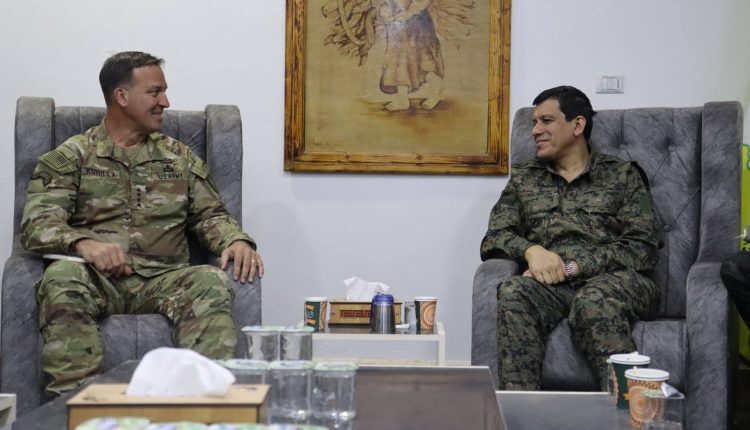The commander of the US Central Command Air Force (CENTCOM), General Alexus Grynkowicz, has stated that Russia appears to be reducing its provocative actions in Syria’s airspace. However, he expressed concerns about the level of cooperation between Russia and Iran in Syria and the presence of a few hundred Wagner members in the region. General Grynkowicz made these remarks during a press briefing on Wednesday in Abu Dhabi, where he discussed defence matters.
He noted that “Russian aircraft’s provocations against American fighter jets in Syria have decreased relative to previous levels.” While describing Moscow’s behaviour as unprofessional, he emphasized that it is currently within safe bounds. General Grynkowicz, who also serves as the commander of the Ninth Air Force and the Joint Forces Air Formation of US Central Command in Southwest Asia, mentioned that after spending months visiting US military bases in Syria and monitoring US drones engaged in counter-terrorism activities, there have been positive developments in Russian behaviour, which he welcomed as a “broad de-escalation.”
President Assad’s Recent Visit to China Sparks Hope for Positive Change in Syria
However, the US media reported General Grynkowicz as saying that “Russian activity in Syrian airspace has remained relatively consistent.” He clarified that Russians are still flying in the region’s airspace but not directly above American forces. He noted, “In the past, I would have been highly concerned about Russian aircraft armed with air-to-ground weapons flying directly over our forces, but this has become increasingly rare and hasn’t occurred for several weeks.”
General Grynkowicz expressed particular concern about the level of cooperation between Russia and Iran, especially in the context of drone activity. He stated, “I am troubled by the extent of cooperation… This evolving relationship is a significant military concern for me.” He warned that “Russian modifications to Iranian drones could enhance Tehran’s military capabilities and increase the threat level in the Middle East.”
He further cautioned that “there is a risk that Russia might receive drones from Iran, modify them, and share some of this technology with Iran, thereby providing Iran with additional capabilities.” This warning comes amid growing apprehensions about the implications of Russia-Iran cooperation on regional security.
This article was translated and edited by The Syrian Observer. The Syrian Observer has not verified the content of this story. Responsibility for the information and views set out in this article lies entirely with the author.


